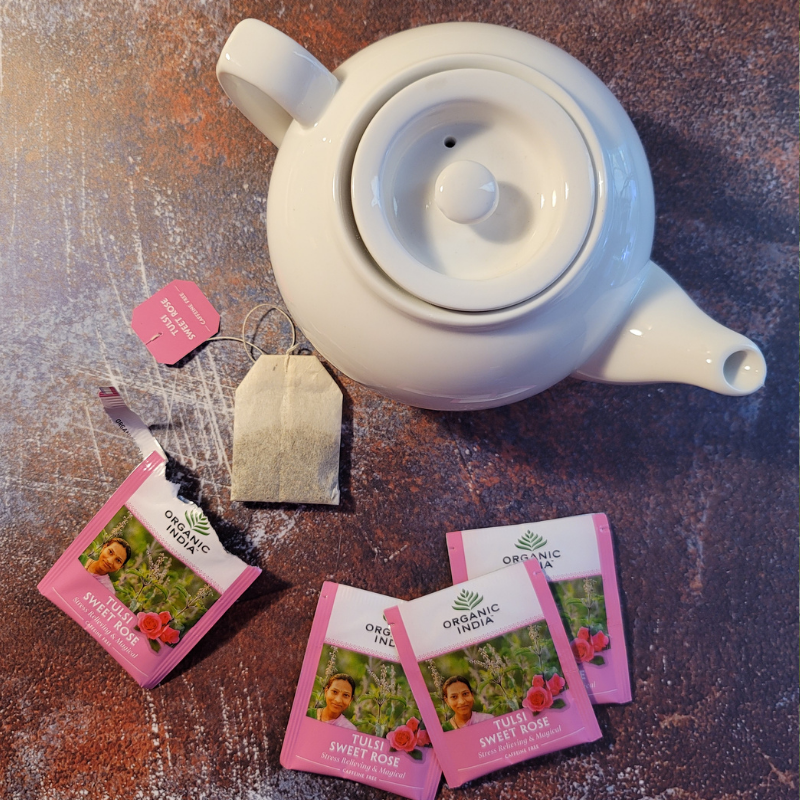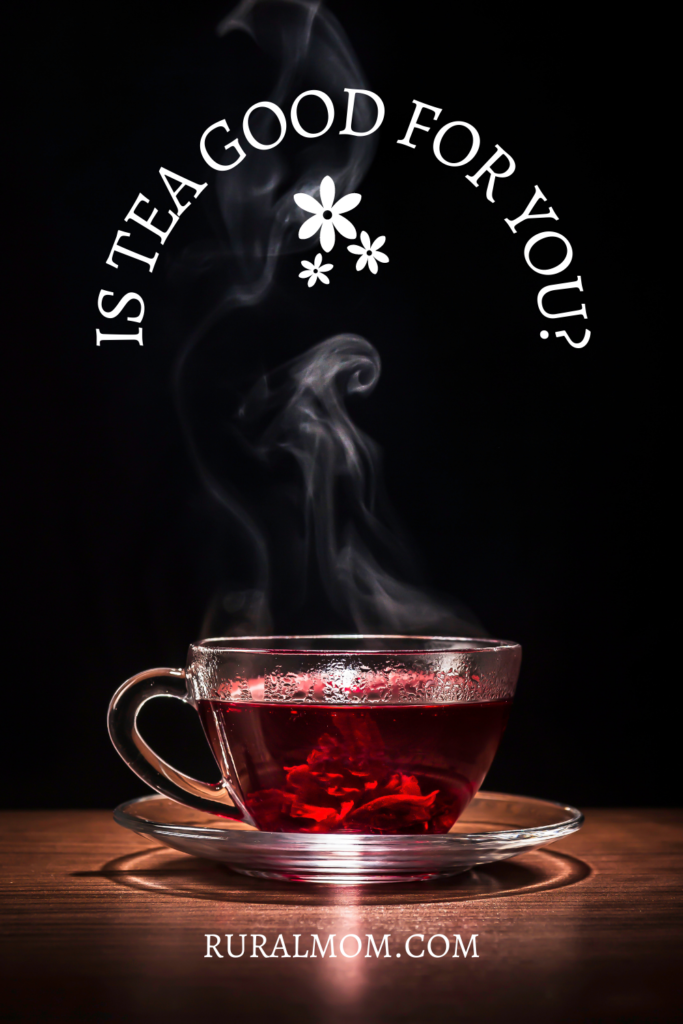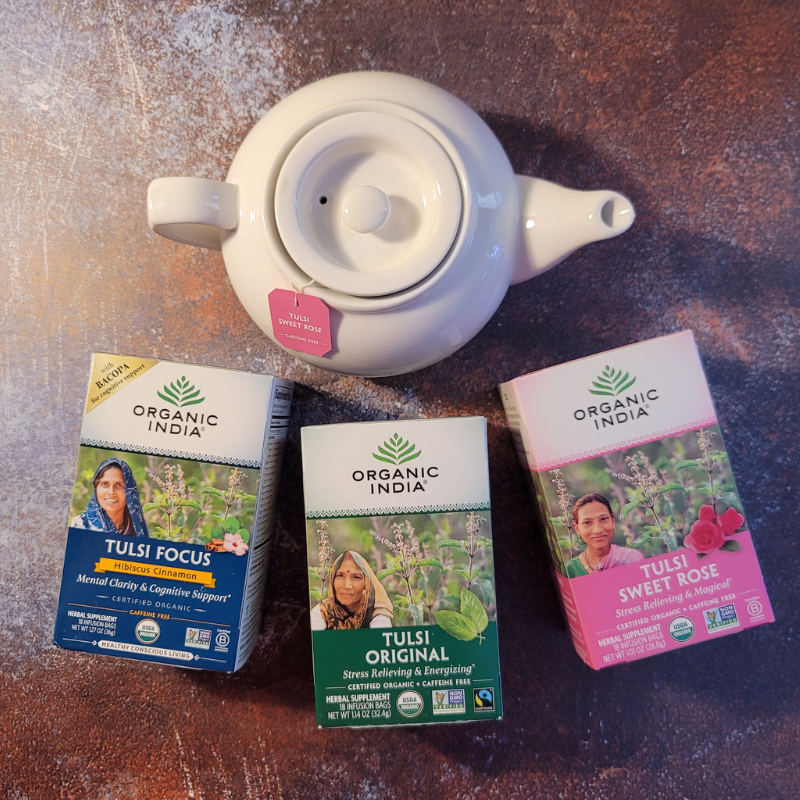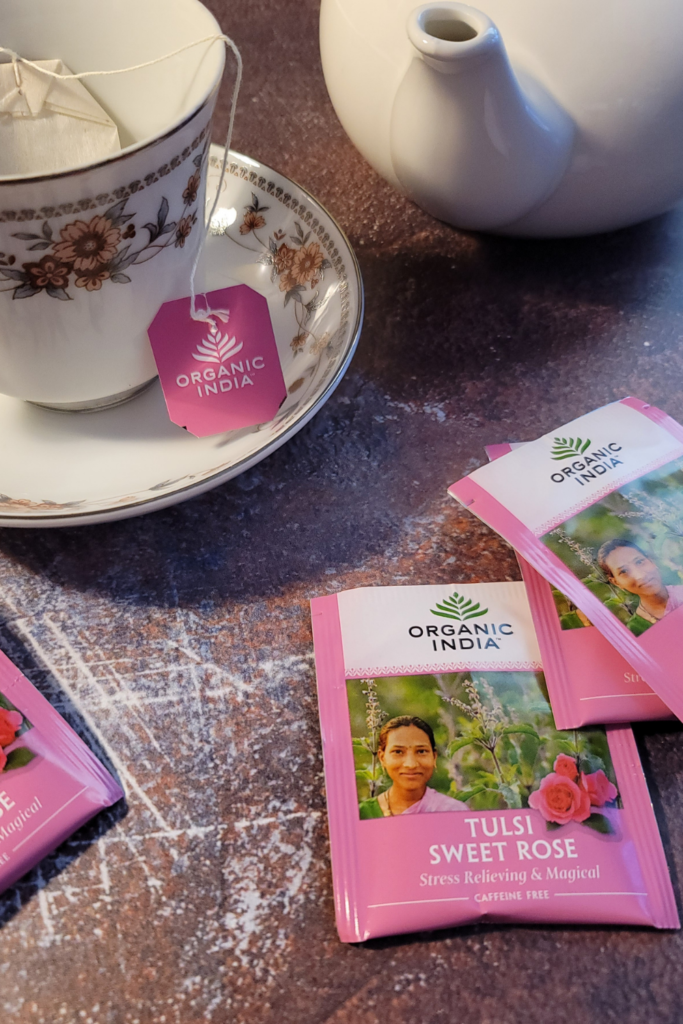Is tea good for us? For centuries, folklore has told of the many benefits associated with drinking tea. What we didn’t study in the science lab, we learned by observation. Teas brewed from a variety of plant sources were believed to help maintain health, or in some cases, cure ailments.
In more recent years, numerous studies have shown there are reasons based in science, to believe that consuming tea on a daily basis has a positive effect on physical, and mental health. We have long thought of herbal teas as having specific value to our health and well being. For example, chamomile tea seems to have a calming effect on jangled nerves, peppermint tea soothes a rumbling tummy.
A combination of teas – chamomile, spearmint, lemon grass, and several others aid sleep. It is important to know that most herbal teas are infusions from herbs, flowers, roots, and other parts of plants. They are not literal teas at all, but they are truly beneficial in many ways.
The ABC’s of Tea
Tea comes from the leaves of an evergreen plant Camellia sinensis. The chief element in tea with beneficial health benefits are flavonoids,. These compounds have antioxidant properties that neutralize elements in the body contributing to chronic disease.
The difference between black tea, green tea, white tea, oolongs, and Pu-erh teas comes from the processing. Green tea and white tea have the shorest processing time. Black and oolong teas are semi-dried, crushed, and fermented to varying degrees. Pu-erh teas are like green teas, you can use as soon you harvest. Sometimes people age them for many years. They can be very expensive, but sought after by tea connoisseurs.
What about Herbal Teas?
Why do people love herbal teas? Along with exceptional flavor they also have natural remedy properties. Mint is a well known digestive aid, chamomile is often used as a sleep aid, and lavender may calm your nerves.
Why do we call herbal teas, teas? In truth, herbal teas are better known in the tea world as “tisanes”. Tisane means “medicinal drink”, which is what a herbal infusion generally is.
One of our favorite herbal tea companies, Organic India creates whole herb tea infusions based on the Ayurvedic principle that the greatest benefits are found in the whole plant rather than parts. Tulsi is the foundation upon which Organic India teas and infusions are formulated. It aids in stress relief and uplifts mood, supports the immune system, and supports the body’s natural detoxification process.
Tulsi, is a caffeine-free herb. Some know it as “holy basil.” It’s not the basil you’ll find in your favorite italian dishes, though. Tulsi is native to India.
Organic India has a knack for blending other herbs with Tulsi to create a variety of herbal teas that address your personal needs. Like Organic India Tulsi Sweet Rose Tea formulated to soothe and calm or Organic India Tulsi Sleep to aid your in your quest for a restful night.
Whatever you choose, adding herbal teas to your daily health regime is delicious choice.
It’s a Great Big Beautiful Tea World
Tea is the most common beverage in the world, after water. It seems that many cultures have long known that teas from the Camellia plant have specific health benefits. The Chinese and the Japanese believe that drinking tea promotes longer life, and this indeed seems to appear true, looking at comparative statistics to longevity in other countries. Drinking tea with meals in Japan and China may be one of the important reasons these two countries have low cancer rates.
With no specific laboratory studies to prove the case, over the centuries, tea has been believed to help in purifying the body by aiding the liver in it’s detoxification process. People believe it destroys typhoid germs, and aids in mental/emotional stability The Chinese claim that pu-erh tea can lower blood alcohol after drinking.
Today, we have studies to indicate the benefits of tea in specific disorders and diseases. Drinking a minimum of three to five cups of tea a day reduces the risk of stroke. It may reduce by half the risk of lung cancer even in those who smoke. Tea reduces bad cholesterol and can restore blood vessel function in cardio-vascular patients.
Studies also show within a period of two to four weeks of drinking the minimum amount of tea, the body’s immune system secrets up to four times the usual amount of interferon. This is an essential ingredient in fighting off disease.
Wow! What else can Tea do?
Tea plays an important role in oral health – inhibiting the plaque-forming ability of oral bacteria. The natural fluoride in tea may support healthy tooth enamel.
Preliminary studies consider that drinking tea has a positive effect on maintaining optimal body weight, by affecting fat accumulation and insulin activity. A particularly interesting study, done over a period of eight years, found that for each eight ounce serving of tea, there was a fourteen percent decrease in risk of kidney stone development in both women (who tend to have a higher incidence of kidney stones) and men.
The best personal response to all of this information would seem to be, decide to drink more tea! It doesn’t seem to matter if the tea is hot or iced. The benefits appear to be the same. Just be aware that most of these benefits are from the teas that come from the Camellia plant. And, it doesn’t seem to matter if the tea is black, green, white, or oolong.
How do you prepare your Tea for drinking?
Follow these simple procedures and you will gain the most benefits for your health.
- Bring the water for your tea to a boil and then let it sit for a few moments.
- Steep your tea in a ceramic or glass container to avoid any reactions to the tea components with a metal pot.
- Steep for a minimum of five minutes, longer is better if you like strong tea – up to ten minutes.
- Drink your tea soon after steeping in order to get the full benefits.
- Adding milk to your tea reduces the body’s ability to absorb the beneficial components. So either drink more tea, or eliminate the milk.
- Adding lemon improves flavor, and also assists in preventing degrading of the beneficial components.
So, get out the tea bags, or the loose tea, and make yourself a cup of health benefits. Enjoy!






